Testosterone is a hormone that plays a crucial role in numerous bodily functions, including muscle mass, bone density, sex drive, mood, and overall well-being. However, testosterone levels can decline naturally with age or due to certain medical conditions, leading to symptoms such as fatigue, reduced libido, and decreased muscle mass. If you suspect that your testosterone levels are low, understanding the signs, causes, and potential solutions can help you restore them to normal levels. In this article, we will explore the topic of low testosterone and provide insights into restoring it to a healthy balance.
Signs of Low Testosterone
Low testosterone, also known as hypogonadism, can present with various symptoms. Here are some common signs to watch for:
Fatigue and Low Energy:
Feeling constantly tired, lacking energy, and experiencing difficulty in performing daily tasks.
Reduced Libido:
Having a decreased interest in sex and experiencing difficulties in achieving or maintaining erections.
Loss of Muscle Mass:
Noticing a decrease in muscle strength, size, and overall muscle mass.
Increased Body Fat:
Gaining weight, particularly around the abdomen and chest area.
Mood Changes:
Experiencing irritability, depression, or a general sense of low mood.
Decreased Bone Density:
Having weakened bones and an increased risk of fractures.
Sleep Disturbances:
Experiencing insomnia, restless sleep, or sleep disturbances.
Causes of Low Testosterone
Several factors can contribute to low testosterone levels, including:
Age:
Testosterone levels tend to decline naturally as men age, with a gradual decrease starting in the late 30s or early 40s.
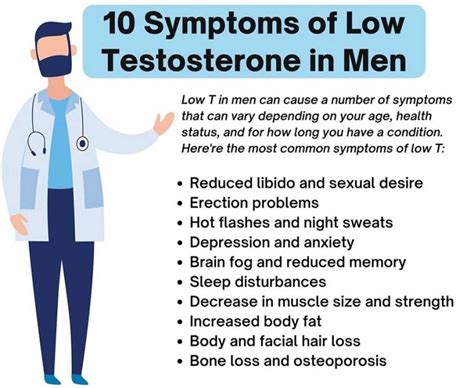
Medical Conditions:
Certain medical conditions, such as hypogonadism, obesity, diabetes, chronic illness, and hormonal disorders, can impact testosterone production.
Medications:
Some medications, including opioids, corticosteroids, and certain medications used for treating prostate cancer, can lower testosterone levels.
Lifestyle Factors:
Unhealthy lifestyle habits, such as poor nutrition, excessive alcohol consumption, lack of exercise, and chronic stress, can contribute to low testosterone production.
Restoring Testosterone to Normal Levels
If you suspect that your testosterone levels are low, it is important to consult with a healthcare professional who can accurately diagnose your condition and provide appropriate treatment options. Here are some strategies that can help restore testosterone to normal levels:
- Lifestyle Modifications
Making positive changes to your lifestyle can have a significant impact on testosterone levels:
Exercise Regularly:
Engaging in both resistance training and cardiovascular exercises can boost testosterone production.

Maintain a Healthy Weight: Losing excess body fat and maintaining a healthy weight can help optimize testosterone levels.
Eat a Balanced Diet:
Consuming a diet rich in lean proteins, healthy fats, fruits, vegetables, and whole grains can support testosterone production.

Manage Stress:
Chronic stress can negatively affect hormone balance. Practicing stress management techniques, such as meditation, yoga, or engaging in hobbies, can help reduce stress levels.

- Testosterone Replacement Therapy (TRT)
For individuals with clinically diagnosed low testosterone levels, testosterone replacement therapy (TRT) may be recommended. TRT involves the administration of testosterone through various methods, such as injections, gels, patches, or pellets. This therapy can help restore testosterone levels to a healthy range and alleviate associated symptoms. However, it is crucial to work closely with a healthcare provider to determine the appropriate dosage and monitor potential side effects.
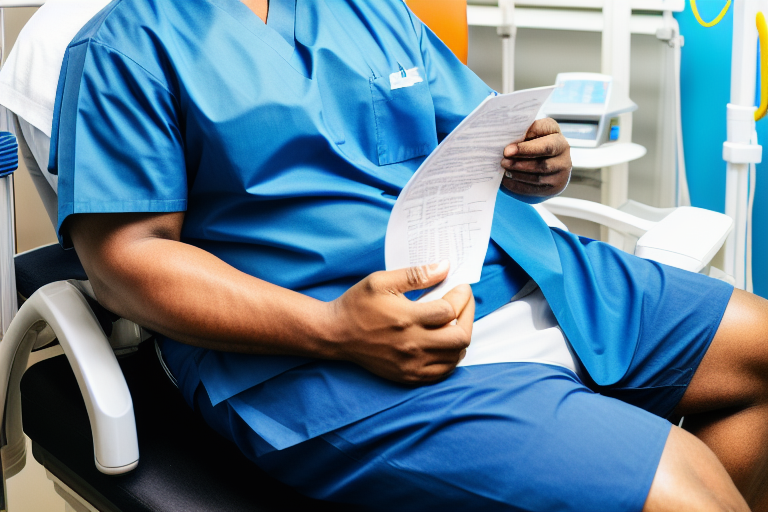
- Natural Supplements
Some natural supplements have been suggested to support healthy testosterone production. However, their effectiveness may vary it is always best to use organic herbs, and it is important to consult with a lifestyle healthcare professional before incorporating any supplements into your routine. Examples of supplements that may help include:

Vitamin D:
Adequate vitamin D levels have been linked to testosterone production. Consider getting your vitamin D levels checked and supplementing if necessary.
Zinc:
Zinc is an essential mineral that plays a role in testosterone synthesis. Foods rich in zinc include oysters, red meat, poultry, beans, and nuts.
Ashwagandha:
This adaptogenic herb has been used traditionally to support testosterone levels and reduce stress. Organic Ashwagandha is found in AlphaViril™.

DHEA:
Dehydroepiandrosterone (DHEA) is a hormone naturally produced by the body. Supplementing with DHEA may help increase testosterone levels in some individuals, but it should be done under medical supervision.
This powerful supplement has Thousands of reviews and comes highly recommended. Dr formulated vegan pills that work for men of any age. AlphaViril™ promotes youthful hormone balance supporting healthy sexual performance, stamina, and prostate function. Contains scientifically researched ingredients supporting youthful muscle mass and strength, unwanted belly fat burner, energy drive, and mood, plus healthy prostate and urination function.
It is important to note that prescribed drugs or replacement therapies may not have the same natural lifestyle changes or natural supplements, and their safety and efficacy can vary. Always consult with a healthcare professional who is trained in natural lifestyles before starting any prescription or supplement regimen.
Conclusion
If you suspect that your testosterone levels are low and are experiencing symptoms such as fatigue, reduced libido, or muscle loss, it is essential to consult with a healthcare professional for an accurate diagnosis. Lifestyle modifications, such as regular exercise, a balanced diet, stress management, and adequate sleep, can help optimize testosterone levels. In cases of clinically diagnosed low testosterone, testosterone replacement therapy (TRT) may be recommended. (Once You Start You Will Need To Continue The Therapy, Make Sure That You Ask Before You Begin)
Natural supplements may also have an important role to play, but it is important to consult with a healthcare professional who understands lifestyle living before using them. By working with a lifestyle healthcare professional and implementing appropriate strategies, it is possible to restore testosterone to normal levels and improve overall well-being without prescriptions or meds.
SIGN UP TO OUR NEWSLETTER AND WATCH A FREE VIDEO ON TESTOSTERONE CLICK HERE!
I also recommend this article that will contribute to your understanding of low “T” levels I’m Looking For Methods to regulate testosterone production
**Disclosure Statement:** Make Money With Max Online promotes affiliate marketing products or services to help save you vital time when searching for courses or products that work.
This means that when you click on an affiliate link provided on our website and make a purchase, we may cost you.
We only recommend products or services that we believe in and have used ourselves. The commissions we earn through affiliate marketing help support the maintenance and growth of our website, allowing us to continue providing valuable content to our readers. Please note that our information and recommendations are solely based on our own experiences and research. Your own experience with any products or services recommended on our website may vary. Thank you for supporting Make Money With Max Online by using our affiliate links. Your support helps us continue our mission of helpful and honest information to our readers.
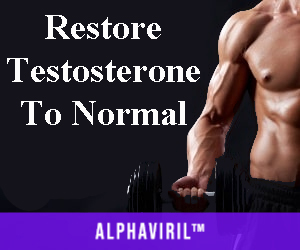

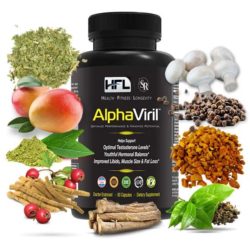

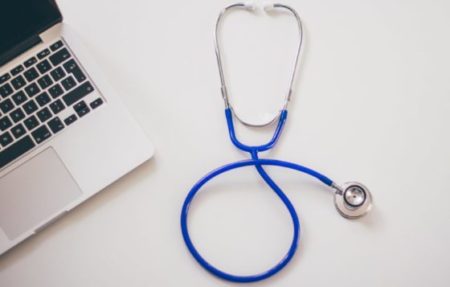
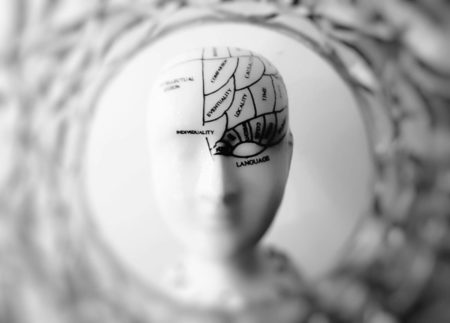
Comments are closed.